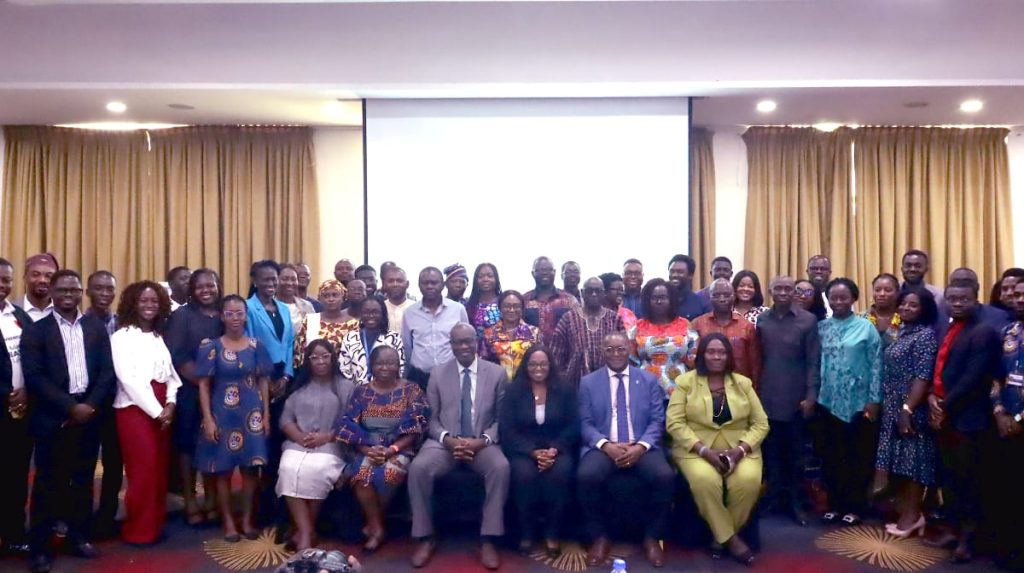|
Getting your Trinity Audio player ready...
|
Research Team on the UK NIHR-funded Project on STOP-Non-Communicable Disease (NCD) Ghana Intervention Co-Design says there is poor funding for the NCD prevention and control programme.
The team said revenues from excise duty (amendment) Act, 2023 (act 1093) were sent to the consolidated fund and not for NCD specific programmes and dwindling donor support. fe, a Qualitative Researcher, speaking at the National Stakeholder Consultation/Validation and co-Design of Interventions and Solutions Meeting, said there had been considerable progress in the last two decades in the development of policies for NCD including hypertension, diabetes and mental health control.
The £10million project aims at contributing to improved health of West African populations through comprehensive and sustainable capacity strengthening for high-quality applied NCD research towards improving prevention, diagnosis and management of hypertension, diabetes, and related common mental disorders (STOP-NCD).
It has research and development partners from Ghana, Niger, Burkina Faso, and the United Kingdom. Phase 1 of the research project focused on “Deepening understanding of contextual influences and effective pathways to prevention, diagnosis and primary care management and referral of NCD” with the team currently moving on to Phase 2 which focuses on co-producing context-tailored intervention packages with relevant stakeholders, drawing on evidence from the phase 1.
A report by World Health Organisation in April 2022 highlighted the alarming rate of deaths from NCDs in Africa, and the NCDs are increasingly becoming the main cause of mortality in sub-Saharan Africa, where the diseases were responsible for 37 per cent of deaths in 2019, rising from 24 per cent in 2000. It has also been estimated that deaths from NCDs are likely to increase by 17 per cent over the next 10 years and that Africa would experience a 27 per cent increase, that is 28 million additional deaths projected to exceed deaths from communicable, maternal, perinatal, and nutritional diseases combined by 2030.
He said this was reflected in documents such as: NCD Policy (Revised in 2022), passage of the Public Health Act with a Section on Tobacco Control Measures; Passage of Tobacco Control Regulation (LI2247 2016); Development of Tobacco Cessation Guidelines; Inclusion of Diabetes, Hypertension in Ghana’s Integrated Disease Surveillance and Response. However, there remained several gaps related to core health system functions including financing, health information and data management systems, human resources and service delivery.
He said there was the preventive and health promotion for risk reduction and treatment adherence. He said in health information and data management systems there was weak surveillance and research on NCD and Paucity of real time data on NCDs. The Researcher said human resource deficits include lack of adequate staff numbers and skills to support NCD control from community through to district and national levels. “There are challenges with service delivery including ineffective stakeholder collaboration in a pluralistic medical setting with extensive healer shopping by clients,” he added.
Professor Irene Agyepong, Director for NIHR Global Health Research Centres West Africa, said access to healthcare facilities was hindered by factors including road quality and transportation networks, particularly affecting remote communities. She said non-communicable diseases were becoming prevalent in low- and middle-income countries, and people in rural areas needed to travel distances to hospital to be diagnosed and receive treatment. She said medicines used to treat hypertension, diabetes, needed to be prescribed by a highly trained physician or doctor but currently the country lacked enough healthcare providers.
Prof. Agyepong advocated ‘telemedicine’ in rural communities to improve medical care for people, saying this area would help and support nurses in the rural areas to communicate with trained doctors at the district hospital to regional levels for assistance in treatment and prescriptions. Dr Sylvia Anie, Member of STOP-NCD Advisory Committee, said bringing key national stakeholders to dialogue on good practices with regard to non-communicable disease was timely and essential. She said this had been an excellent forum for sharing findings of situational analyses on NCDs, discussing NCD control, education, promotion and screening for hypertension, diabetes and mental health interventions in Ghana.
Dr Anie said, “NCDs are a major public health challenge globally and estimates indicate that NCDs are the leading causes of mortality, accounting for 41 million deaths annually.” “Let us collectively ensure that we move forward with the information gained from this stakeholders forum to ensure improved outcomes as we address NCD prevention, control and treatment,” she added.
Source: GNA
CHECK THIS: Ghana’s Rising Star Bravaddo Releases Thought-Provoking Track “CAREFUL”


